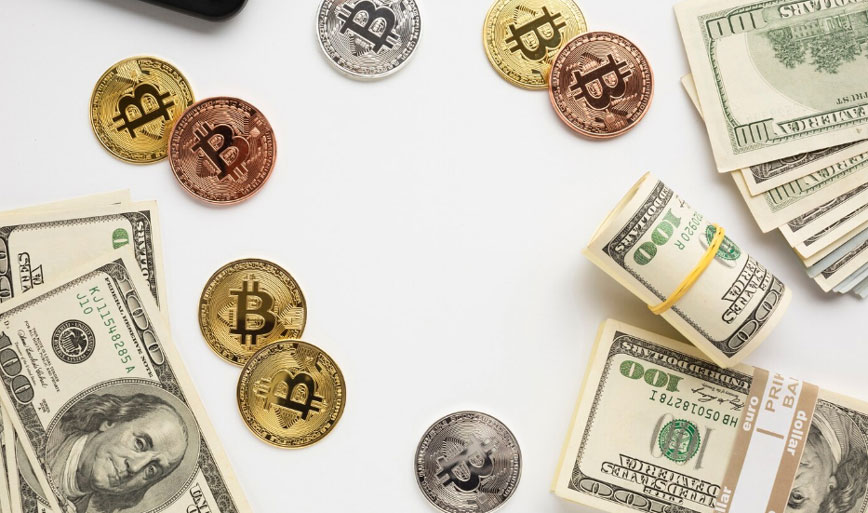
Cryptocurrency has emerged as a lucrative market, attracting investors with promises of high returns. However, the allure of “guaranteed returns” in the crypto world has also led many to fall victim to scams and deceptive schemes. As the digital currency landscape grows, it’s crucial to stay vigilant and understand the potential risks. In this article, we will explore the top 10 traps that investors need to be aware of when dealing with U.S. cryptocurrency markets.
1. Unrealistic Promises of Guaranteed Returns
One of the most common scams in the cryptocurrency space is the promise of guaranteed returns. Cryptocurrencies are volatile by nature, making it impossible to guarantee profits. When an investment opportunity promises fixed or risk-free returns, it’s a red flag. These scams often leverage high-profile figures or fake endorsements to build credibility, luring unsuspecting investors into believing in their false claims.
2. Ponzi Schemes and Pyramid Schemes
Ponzi and pyramid schemes are among the most notorious traps in the crypto world. These schemes rely on recruiting new investors to pay returns to earlier investors, creating the illusion of profitability. In reality, once the flow of new participants slows down, the scheme collapses, leaving late investors with significant losses. Investors must be cautious about platforms that prioritize recruitment over actual investment or trading.
3. Pump-and-Dump Schemes
A pump-and-dump scheme involves artificially inflating the price of a cryptocurrency by spreading false or misleading information to drive up demand. Once the price rises, the perpetrators sell off their holdings, causing the price to plummet, and leaving investors with worthless coins. Always verify the credibility of the information before making any investment decisions.
4. Fake ICOs (Initial Coin Offerings)
ICO scams are another prevalent trap in the crypto market. Fake ICOs involve the launch of fraudulent cryptocurrency projects that promise innovative technologies but ultimately disappear with investors’ money. These scams often use flashy websites, whitepapers, and fake team members to create a sense of legitimacy. Thorough research and skepticism are key when participating in ICOs.
5. Phishing and Social Engineering Attacks
Phishing scams have been widespread in the crypto community. Attackers may impersonate legitimate platforms, offering fake wallets or exchanges to steal personal information or private keys. Always double-check website URLs and be cautious of unsolicited messages or links. Never share sensitive information like private keys or passwords with anyone.
6. Misleading “Crypto Trading Bots”
Crypto trading bots claim to automate and optimize trading strategies, offering guaranteed profits. However, many of these bots are either ineffective or outright scams. While automated trading systems do exist, there are no shortcuts to consistent profit-making in the volatile crypto market. Be wary of services that promise effortless wealth through automation.
7. Fake Cryptocurrency Exchanges
Fake or fraudulent exchanges may look similar to reputable ones but are designed to steal users’ funds. These exchanges often manipulate prices, delay withdrawals, or disappear with user funds once a certain threshold of investment is reached. To avoid this trap, always verify the legitimacy of an exchange through user reviews, regulatory compliance, and security protocols.
8. Rug Pulls in DeFi (Decentralized Finance)
Rug pulls are a significant risk in the decentralized finance (DeFi) space. In a rug pull, developers of a DeFi project abruptly withdraw liquidity from a pool or a smart contract, causing the project to collapse and investors to lose everything. Be cautious with new DeFi projects, especially those that are unverified or lack transparency in their operations.
9. Lack of Proper Regulation and Legal Framework
The lack of regulation in the U.S. cryptocurrency market leaves investors vulnerable to a wide range of scams and fraudulent activities. Without regulatory oversight, fraudulent actors can operate without consequence, making it difficult for investors to seek legal recourse. It’s essential to stay informed about the current state of crypto regulations in your region and use platforms that comply with established standards.
10. Overhyped New Cryptocurrencies
The cryptocurrency market is flooded with new tokens and coins, many of which are heavily hyped by marketing campaigns but lack real-world use cases or solid technological foundations. Investors should be cautious of projects that seem too good to be true or those that offer exorbitant returns with little to no proof of concept.
Conclusion: Protecting Yourself in the Crypto World
As cryptocurrency continues to gain popularity, the risks associated with it remain high. To protect yourself from these scams, always do your research, avoid trusting unrealistic promises, and be skeptical of high-return investments that sound too good to be true. By staying informed and cautious, you can navigate the complex world of cryptocurrency safely and securely.




